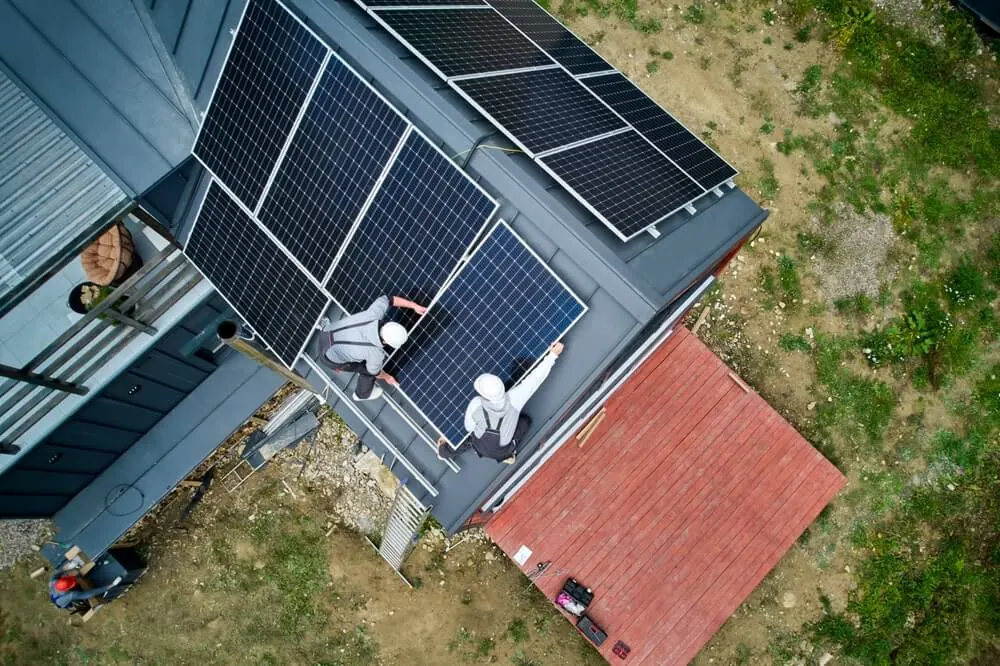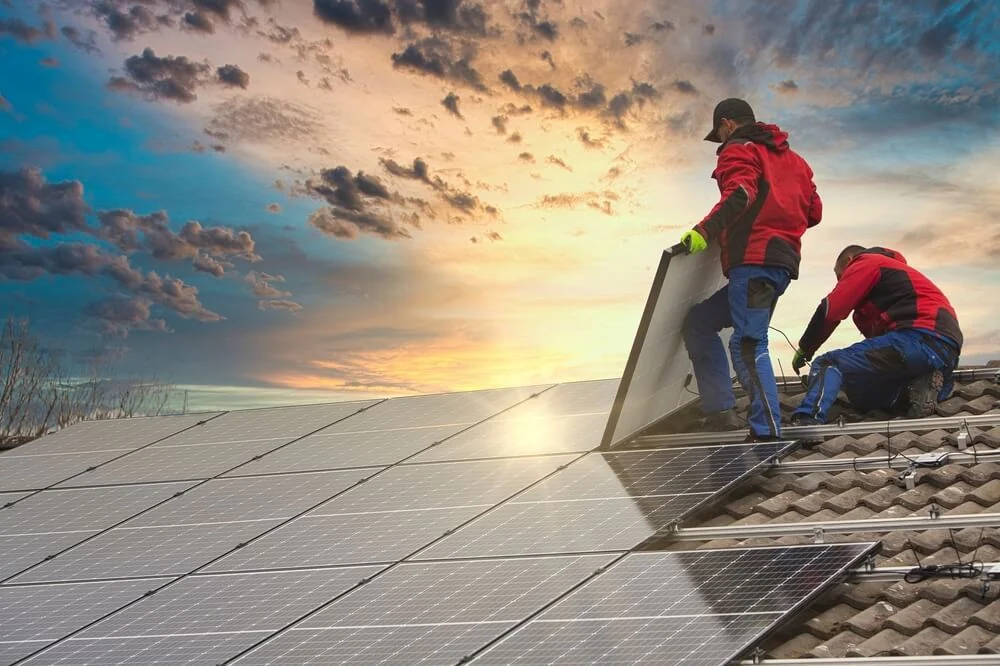Excellent Reviews:
If you’re wondering, “How much sunlight do I need?,” there’s good news: The state of Connecticut experiences 150 to 180 good solar days each year. These are days when the sky is clear or partly cloudy, when solar panels can operate at their best. At that rate, the average Connecticut solar system can pay for itself in savings in just over 6.5 years! That’s quite an investment.
Also, Connecticut is consistently one of the most expensive states when it comes to utility rates. Wouldn’t it make sense to lessen that burden?
At Shedd Energy, we know that solar systems make a world of sense for our Connecticut customers. Going solar allows homeowners to generate energy from their rooftops relatively passively, helping offset the cost of high energy bills from the utility company. That’s why we make it as easy and affordable as possible for more homes to benefit from solar panels and battery backup systems.

For many homeowners, the solar installation process is likely intimidating. After all, most solar customers only install one solar system in their entire lives, so solar installations can be a bit of a mystery. We wanted to break down the process so you have a better understanding of what installing solar looks like for you.
Asphalt shingles offer durability, affordability, and a wide range of styles and colors, enhancing curb appeal. They provide reliable protection against weather elements and are relatively easy to install and maintain.

There are several ways that Connecticut homeowners can pay for their solar installations, but some may be better in certain circumstances than others.
Purchasing a system outright means paying for the entire system upfront, whether by cash, credit card, home equity loan, or another source. Through this method, the homeowner owns the system and has the benefit of a warranty, but maintenance and repairs that aren’t under warranty are not covered. However, since the homeowner owns the system, they have the benefit of writing up to 30% of their installation costs off against their tax liability.
Solar loans offer similar benefits as purchasing outright, but customers can pay off their loan one month at a time. In this situation, the homeowner is responsible for maintenance and non-warranty repairs, but they can also take advantage of the same tax advantages.
Solar leases are often zero-money-down agreements that allow homeowners to have a solar system installed on their roofs. Under these agreements, the homeowner doesn’t own the equipment, so maintenance and repairs are up to the solar provider. While that’s an advantage, any tax benefits, rebates, or other incentives go to the solar company, not the homeowner. Also, the solar providers will typically sell the excess energy back to the utility companies, not the homeowners.
A Power Purchase Agreement or PPA is an agreement between a homeowner and a solar provider through which a system is installed on the roof for zero money down, and the homeowner agrees to purchase the energy produced by the system from the provider. There are no rebates or tax benefits to this approach, but the electricity bill from the solar provider is typically lower than the bill from a utility company.
We focus primarily on ownership, as well know the tax benefits, local incentives, and rebates that customers are eligible for are worth it. While leasing and PPAs have their place, we feel ownership is the better route.
Shedd stands out in Connecticut because we truly are a community solar company. We’re local and understand the needs and desires of Connecticut residents and their solar systems. And, installing solar panels one time isn’t our goal—our goal is to make a customer for life.
In general, solar installations take between 1 to 3 days. It may take longer for inspectors to certify the installation, but the bulk of the work will be finished in a few days.
Solar panels can last for decades, but they can lose effectiveness and efficiency over time. Regular maintenance (cleaning and inspections, primarily) is a must to keep these systems working efficiently for as long as possible.
Determining how many solar panels a system requires comes down to several factors. For one, the current energy consumption needs to be considered. Also, the size of the roof is a factor. Ultimately, this is a decision for our design team and they’ll help you come up with the right design with the proper amount of solar panels.
Our customers believe we’re the best solar company because we believe wholeheartedly in education. We help our customers learn as much as possible before they make their decisions to ensure they know what they’re buying and how it works.
If you’re ready to go solar, contact Shedd Energy today. We’ll help walk you through the entire process of having solar power for your home so you never feel left behind. We’ll help you harness the sun’s energy to lower your utility bills while also taking advantage of all the available tax credits and incentives available. Contact us today.